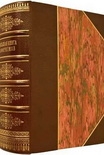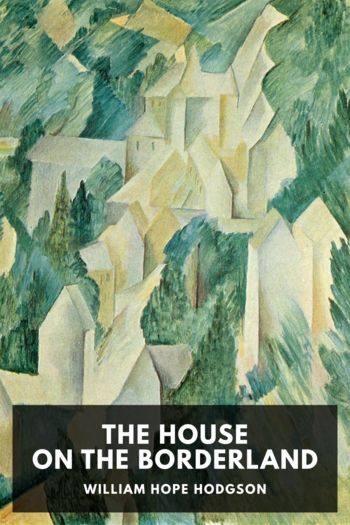Gluck by Diana Souhami (most interesting books to read .TXT) 📗

- Author: Diana Souhami
Book online «Gluck by Diana Souhami (most interesting books to read .TXT) 📗». Author Diana Souhami
He did not comprehend that when Gluck was to drift apart from C., there were plenty of other women to fill the gap in the transference chain. Strong hopes were pinned on Louis and his power to persuade his sister to follow a straighter path. He and Gluck were very close at that time, though in later years they quarrelled. She wrote to him often – to ‘Dearest darling Ludovici’, ‘Dearest, dearest Luigini’, ‘Dearest, dearest, darling old thing’ – confided news of Craig, work and adventure, told him the books she was reading, the Lamorna gossip, the shows she was seeing in town and joked with him about their parents’ foibles and fussy ways. ‘Of course my Ludo,’ she wrote to him when she was twenty-three and he twenty-one, ‘you know I shall always stick by you and I hope we shall always understand or try to understand one another and be the very closest of pals.’ She even suggested that they go away together to live the artistic life – he was to be a writer: ‘My dear there is nothing I should like better than to go with you and live of and with a place. We two alone …’13 But there was no way that he could persuade or dissuade her on any issue and nor did he try. Given, though, his unwavering loyalty to his parents, his strong conservatism and conformity, he was surprisingly tolerant of her outrageous garb, artistic ambitions and sexual leanings. When, years later, there was a rift between them, it was because of clashes over Gluck’s business affairs, rather than how she lived.
Gluck wanted, too, to get on well with her mother and father. She was, they conceded, very affectionate. She was fond of them both and particularly so of her mother. But she regarded compromise as self-betrayal and was of a totally determined disposition. If she felt she must paint, wear plus fours and woo the ladies, nothing in the world would stop her. Her passions, desires and whims were imperative and paramount. In later years they hardened into obsessions, and caused her, and all close to her, considerable damage.
She saw her parents when in town, dined with them at the Trocadero and appreciated the ‘excellent Burgundy’, but embarrassed her father by her appearance. They saw, with Louis’ best friend, Peter Layard, later killed in the war, a ‘priceless spy play called “Pigeon Post”’, by Seymour Obermer, at the Garrick Theatre, sat in the front row of the dress circle and ate chocolates the size of hens’ eggs. ‘It was a thorough spy drama’, Peter wrote to Louis (25 May 1918), ‘and Hannah and I screamed silently all the time at the most tragic parts and your Papa was fearfully thrilled as were your Mama, myself and also Hannah I think, but the latter too blasé to admit it.’ Eighteen years later Gluck was to fall totally in love with Seymour Obermer’s wife.
The ‘kink in the brain’ was there to stay and common ground with her parents was hard to find. ‘I hear that her work is very good but it gives me no pleasure under all the circumstances,’ her father remarked. With Craig as her ally Gluck entered another world. She visited Craig’s parental home, as she told Louis:
I went into the bathroom, locked the door, put a penny in the meter lit the geyser in the approved fashion and a thin stream of water gradually growing hotter weakly fell from the tap. When it had covered the bottom of the bath with a thin layer I stepped in jauntily and it rose majestically to my ankle. Naturally I then reclined luxuriously and pretended it was a beautiful hot bath. Just as I was getting comfortable the damn thing backfired or something and flames began to dash about. I leapt at it like a wild beast and shut off all the taps at once with teeth-hair-hands-feet, anything that came handy. I took no risks as to which tap was turned off first. The vision of me leaping like a catherine wheel waving arms and legs frantically must appeal to you. And that was the end of a perfect bath.14
In 1918 she and Craig went, with four thousand others, to the Victory Ball at the Albert Hall. They dressed as Pierrot and Columbine, danced from ten at night until five in the morning, then commandeered a private car to take them home. They made their costumes and Craig’s got a special mention in The Sketch. It was black and silver with a head-dress of clustered pearls lent by her landlady. They went to the Russian Ballet at the Coliseum with Gluck wearing a cossack hat, plus fours and black boots. Those were the days of the great Diaghilev productions, with costumes by Léon Bakst and dancing by Pavlova, Nijinsky and Léonid Massine. ‘It is a real treat’, Gluck said – and rued its passing:
It is terrible to think that there will not be any more Imperial Russian Ballet. The present and future generations will have to work very hard indeed to replace a tenth of the beautiful things that have become obsolete or been destroyed by this war.15
They went to Promenade Concerts, shopped from barrows in Soho and found





Comments (0)